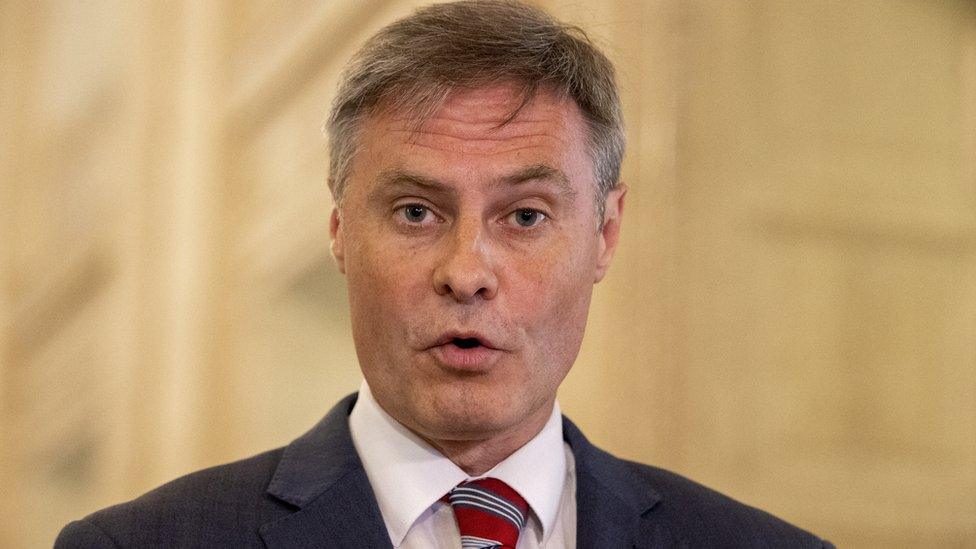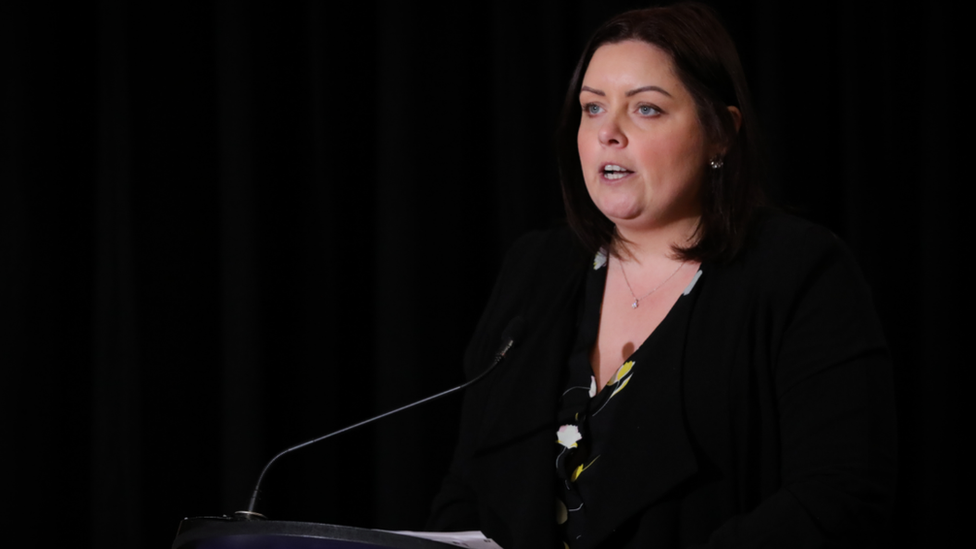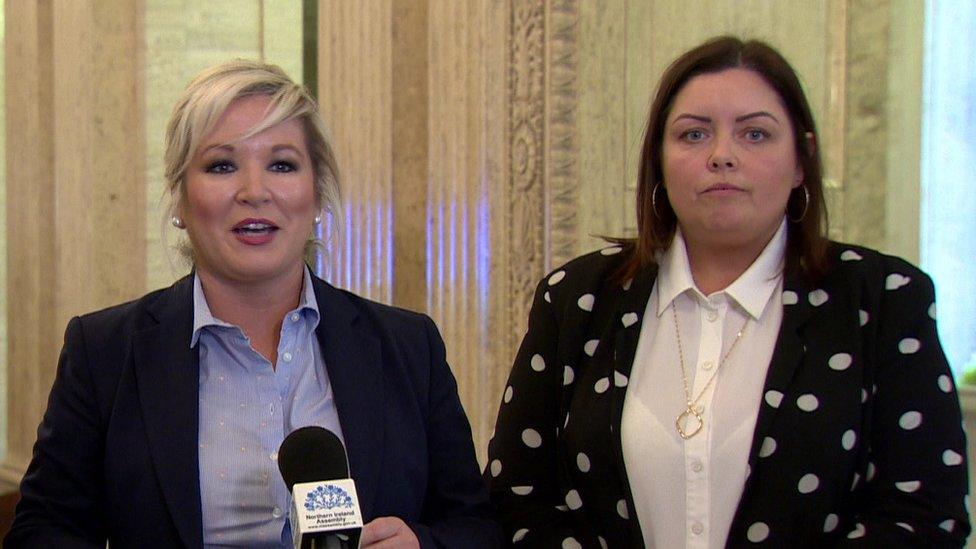Bedroom tax: NI mitigation extensions 'blocked 39 times'
- Published

Proposals to extend welfare mitigations in Northern Ireland have been blocked from executive discussion 39 times, the communities minister has said.
The legislation would permanently soften the impact of welfare reforms by helping people who would have been affected by the so-called bedroom tax.
Deirdre Hargey said the bill needs executive approval before it can go to the assembly.
She accused DUP First Minister Paul Givan of blocking the proposals.
Speaking to Stormont's communities committee on Thursday, Ms Hargey said the DUP wants to see an end date of three years in the legislation, but she said that would mean "another cliff edge".
Loopholes
"I just think that's cruel when we know the housing situation will not be resolved," she said.
"I'm happy to look at a review of the mitigations in three years' time but allow it onto the agenda so we can discuss it."
Ms Hargey tweeted on Thursday night that her welfare mitigations papers had again been blocked from the executive agenda and could not proceed.
Allow X content?
This article contains content provided by X. We ask for your permission before anything is loaded, as they may be using cookies and other technologies. You may want to read X’s cookie policy, external and privacy policy, external before accepting. To view this content choose ‘accept and continue’.
The mitigations had previously been due to end in March 2020, before being extended temporarily but Ms Hargey had committed to closing the loopholes.
People supported by the mitigation receive this in the form of a top-up payment.
Currently, a loophole means someone will no longer receive this payment if they move to a new property.
Ms Hargey said she was "frustrated" that her repeated attempts to bring the paper to fellow ministers had been blocked.
"I'm coming to you (the committee) with sheer frustration that this paper is continually being blocked from being placed on the agenda - blocked by one party," she said.
"Michelle O'Neill (Northern Ireland's deputy first minister) has said she supports the introduction of the paper on the agenda for a decision on the way forward.
"Put it to discussion and allow a democratic decision to be taken and I will respect that decision."
'Clock is ticking'
DUP MLA Paul Frew put it to the minister that she had not managed to reach consensus, and said the legislation needed to be "fiscally appropriate and wise".
He asked: "Why would it be so wrong to have a three-year period… whilst this is needed we are also breaking parity with the rest of the UK which shouldn't be trodden on lightly?"
But Ms Hargey said she had worked for 18 months to reach agreement and that the "clock is ticking".
"I don't agree with Tory ideology - we have broken parity and I think it's good we have," she said.
Ms Hargey said the DUP "would not budge beyond the three years" as an end date in the legislation, which would require her to redraft the legislation and take extra time.

DUP MLA Paul Frew said the legislation needed to be "fiscally appropriate and wise"
The minister added that she had already indicated the legislation - if approved - would need to be fast-tracked through the assembly via accelerated passage in order to become law before the next assembly election in May 2022.
"We are facing that impending cliff edge again. It's disgraceful that this has still not reached the executive agenda for decision," she said.
"We are running out of time here and my concern is if we don't get it through now, I don't know if the budget will be enough to sustain the payments overall."
Currently, claimants can only receive mitigating payments on a benefit if they were receiving it in 2016, when the mitigations were introduced.
'Gone on far too long'
The bedroom tax had been originally due to take effect in Northern Ireland in 2017.
Under the bedroom tax, or spare room subsidy, people who receive welfare payments would have had their housing benefit reduced if they had one or more spare bedrooms.
The tax was expected to cost those affected an average of £20 a week.
DUP deputy leader and chair of the communities committee, Paula Bradley, said she the committee would write to the Executive Office asking for the issue to be added to the executive's agenda for decision on Thursday.
"I agree it's gone on for far too long and I agree it probably does need to go to a vote," she said.
Related topics
- Published20 March 2021

- Published3 February 2020

- Published10 March 2020
